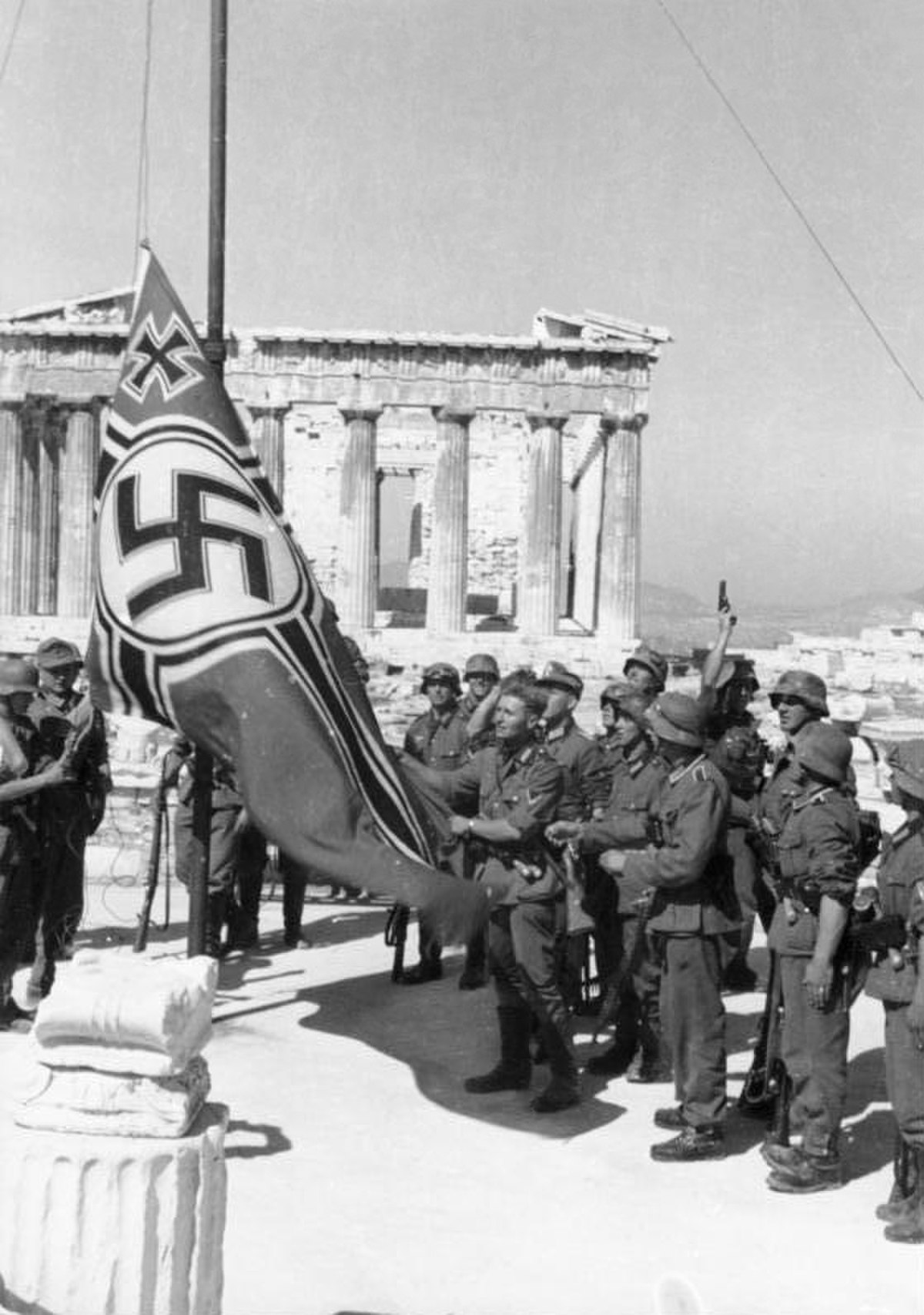
Greece during World War II
GreeceThe military history of Greece during World War II began on 28 October 1940, when the Italian Army invaded Greece from Albania, beginning the Greco-Italian War. The Greek Army temporarily halted the invasion and pushed the Italians back into Albania. The Greek successes forced Nazi Germany to intervene. The Germans invaded Greece and Yugoslavia on 6 April 1941, and overran both countries within a month, despite British aid to Greece in the form of an expeditionary corps. The conquest of Greece was completed in May with the capture of Crete from the air, although the Fallschirmjäger (German paratroopers) suffered such extensive casualties in this operation that the Oberkommando der Wehrmacht (German High Command) abandoned large-scale airborne operations for the remainder of the war. The German diversion of resources in the Balkans is also considered by some historians to have delayed the launch of the invasion of the Soviet Union by a critical month, which proved disastrous when the German Army failed to take Moscow.
Greece was occupied and divided between Germany, Italy, and Bulgaria, while the King and the government fled into exile in Egypt. First attempts at armed resistance in summer 1941 were crushed by the Axis powers, but the Resistance movement began again in 1942 and grew enormously in 1943 and 1944, liberating large parts of the country's mountainous interior and tying down considerable Axis forces. Political tensions between the Resistance groups broke out in a civil conflict among them in late 1943, which continued until the spring of 1944. The exiled Greek government also formed armed forces of its own, which served and fought alongside the British in the Middle East, North Africa, and Italy. The contribution of the Greek Navy and merchant marine, in particular, was of special importance to the Allied cause.
Mainland Greece was liberated in October 1944 with the German withdrawal in the face of the advancing Red Army, while German garrisons held out in the Aegean Islands until after the war's end. The country was devastated by war and occupation, and its economy and infrastructure lay in ruins. By 1946, a civil war erupted between the foreign-sponsored conservative government and leftist guerrillas, which lasted until 1949.
